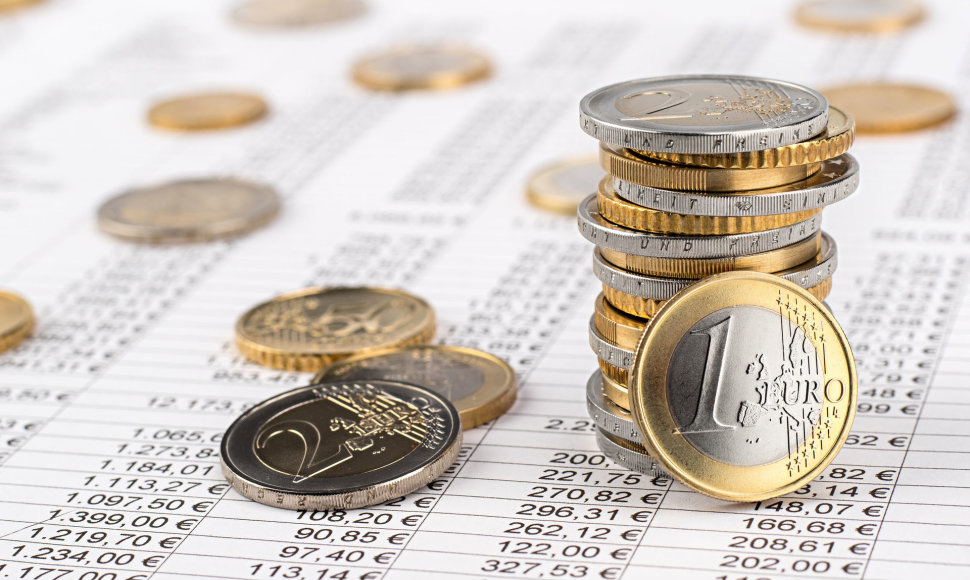Rimantė Balsiūnaitė, a researcher at the Consumer Alliance – an organization that performed the study, explained to journalists on Monday that five topics were examined: climate change, human rights, gender equality, workers’ rights, and sustainability.
For example, in terms of gender equality, one of the criteria encompassed the bank’s internal procedures, such as whether they guarantee that women would hold at least 30% of the top positions. Other policies encompassed procedures the banks employ to ensure companies they lend to also uphold gender equality rights.
In the study, only open-source, public information found online and elsewhere was used.
“These were annual sustainability reports, information available online. The information was inspected critically,” R. Balsiūnaitė assured.
The study was based on the methodology of Fair Finance International, an international network that operates to encourage banks to act more sustainably.
“The study was performed in three phases – we reviewed information which Fair Finance International then checked. The second stage was sharing the results with the banks. We received feedback from them, and, with this, we made adjustments to the study, taking the comments into account,” the researcher said.
Highest scores – Swedbank and SEB
The results indicated that Swedbank (6.24 points out of 10) earned the highest score, with SEB being in second place (5.76 points) and followed by Šiaulių Bankas and Luminor in third, earning 0.36 and 0.14 points respectively. Medicinos Bankas and Citadele earned no points.
That said, Consumer Alliance vice president and member of the European Economic and Social Committee Kęstutis Kupšys emphasised that the last few banks earning no points didn’t mean they were not sustainable. In fact, what it indicates is that they employ a low number of sustainability policies.
“There is no reason to say they are not sustainable. But, unfortunately, they view the implementation of international lending and investment policies in Lithuania dismissively,” K. Kupšys stated.
R. Balsiūnaitė also noted that certain banks offered very limited information, while others offered comprehensive answers.
“We were faced with a lack of information, being unable to find significant information ourselves, limited responses from some banks. While others responded in detail, some, unfortunately, did not answer at all,” R. Balsiūnaitė said.
For example, one of the points was that the banks only used energy from renewables in their operations. If a bank provides no such information, they score a zero for this criterion.
“Banks need to shape up”
K. Kupšys emphasised that the study results indicate that banks need to shape up because they have nothing to compare to right now.
“There is no bank to earn full points, have a score of ten,” the Consumer Alliance VP said.
Meanwhile, when an equivalent study was performed in Norway, some banks were found to have scores of 8.7 and 9.7.
“Norwegians have banks which could be said to be sustainable, employing most or essentially all sustainability policies. If the result is 87% or 97%, the client has options to choose from. In Lithuania, the result reaches around 60% – what do you compare with? Bad and worse? We need a standout that other Lithuanian banks could look up to. Unfortunately, we currently do not have one,” K. Kupšys criticised.
According to him, the real situation in the banks could be even worse in terms of sustainability policies. For example, according to the Consumer Alliance vice president, one of the banks’ leaders currently travels to work on an electric scooter and the bank has abandoned the use of disposable cups, but concurrently, its parent bank has granted 20 billion dollars in loans to operations related to fossil fuels globally.
“It is crucial not to be fooled and avoid getting caught up in the banks’ manipulation, their network of greenwashing. You have to be sceptical, distrustful, and ask significant questions as to why the bank continues to invest 20 billion dollars into operations leading to a great downturn of our civilisation in the next ten years. We are well aware of what crises we could face due to climate change and the deterioration in biodiversity,” the vice president of the Consumer Alliance said.
This is the first time a comprehensive study has been prepared in Lithuania based on the Fair Finance International methodology. Sustainable finance specialist firm “Profundo” from the Netherlands trained a team assembled by the Consumer Alliance specifically for this study.
Bank association responds in a positive mood
Association of Lithuanian Banks (LBA) president Eivilė Čipkutė noted in a written response that European Union countries are currently transitioning into a practical stage of implementing the European Green Deal, which will demand everyone’s involvement – state institutions, financial sector, and consumers.
According to her, this first of its kind study in Lithuania is a reference point both for banks and consumers.
“We are currently at the beginning of a path to transformation and so, we view the study results positively. Some banks operating in Lithuania have made progress. In contrast, others have some catching up to do. Still, we must understand that the Green Deal is a new reality, which is becoming an inevitable part of everyday operations for credit institutions. Therefore, the study is a good opportunity to reflect on where we are and compare ourselves to other countries,” E. Čipkutė says.
According to her, the Lithuanian banking sector is not monolithic. On the contrary, players with differing decision-making power operate in it, and they inevitably move at different paces, which makes it essential to ensure that they all move in one direction – toward sustainability.
Original version of this article published in Lithuanian here: https://www.15min.lt/verslas/naujiena/finansai/banku-politiku-tyrimas-isryskino-problema-ne-visi-teikia-issamia-informacija-662-1537188
The banking sector study can be downloaded from here (in Lithuanian): https://sc.bns.lt/docs/1/389975/FFI_tyrimas_Lietuva_2021_liepa1.pdf












